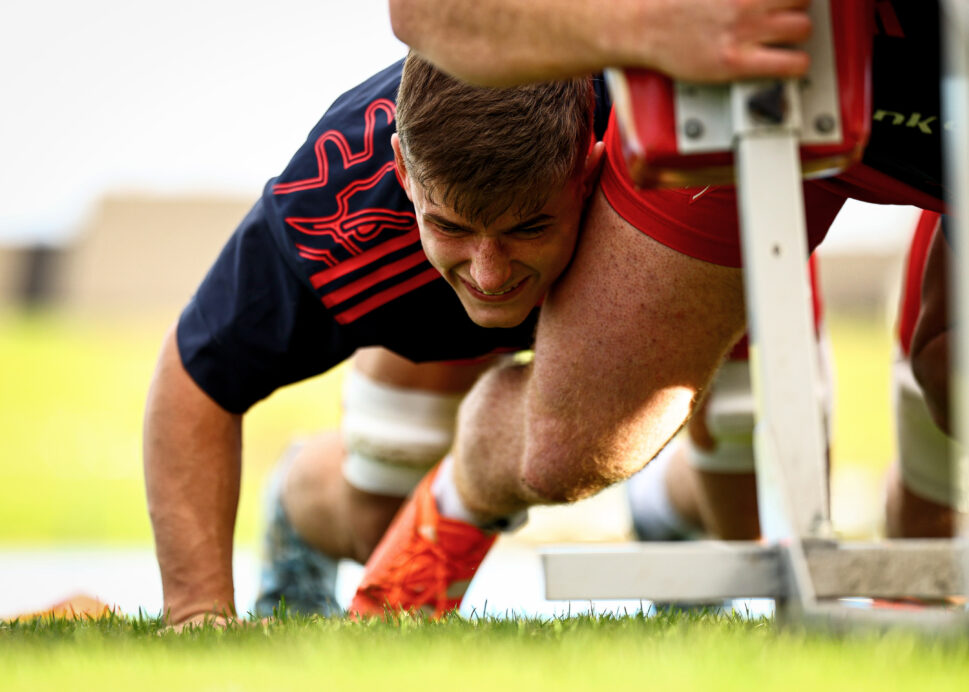IRFU Announces Comprehensive Club Competition Review of the Women’s Adult Club Game
30th June 2025 By The Editor

©INPHO
Women’s rugby is one of the Irish rugby Foolball Union’s (IRFU) top strategic priorities in their 2024-2028 strategic plan and ‘Accelerating the Women’s Game’ is one of the union’s high priority goals. The women’s game is growing at an unprecedented pace globally and in Ireland.
As the Irish national and provincial pathway matures alongside the evolution of the Celtic Challenge competition, the domestic game remains the foundation for player, coach, referee and volunteer development. It plays a central role in local communities, to provide a welcoming environment where girls and women can learn, grow and volunteer in rugby.
There is agreement amongst the IRFU, provincial and club membership that the adult women’s game is outgrowing its current domestic format, and there is a pressing need for a redefinition of its purpose and structure to meet the evolving needs of the game. The IRFU will therefore initiate a comprehensive review of the Women’s Adult Club Competition to inform the redesign of its competition structure to best fit the future of Irish women’s rugby.
Objective of the Review: To create comprehensive competition structures in Irish Rugby that supports adult women’s players to have access to the right level of competition and development, and supports the ambitions of Celtic Challenge and Representative Teams.
Review Governance: The Women’s Rugby Adult Club Review will be directed by the Irish Rugby Football Union (IRFU) through a Steering Group composed of:
• Stephen Black
• Yvonne Comer
• Niall Rynne
• Grainne Carroll
• Rosie Foley
• External Member
The Steering Group will oversee governance and support throughout the review, ensuring alignment with the agreed Terms of Reference and facilitating necessary IRFU assistance. Head of Women’s Strategy Lynne Cantwell will report to the Steering Group at designated intervals, aided by an internal IRFU working group that includes Colin McEntee, Amanda Greensmith and Kevin Beggs, and other key staff members with relevant expertise.
Review Objectives: To conduct a comprehensive review of the Women’s Rugby Adult Club Review, considering:
• Growth of Particiaption in the Provincial Club Game
• Elevate quality of rugby and participant satisfaction
• Modernisation
• Drive Operating Standards
Scope of the Review:
• Gather comprehensive feedback from priority stakeholders ie. Players, Coaches, Administrators
• Analyse competition structure, regulations, and scheduling.
• Explore enhancements to competition quality.
• Include specific work exploring the blockers and enables that help transition an age grade player into senior rugby.
Stakeholder Engagement: A holistic approach involves engaging a wide array of stakeholders, including:
• Rugby Committee and Women’s Chairpersons
• High-Performance (HP) Department
• Participating clubs, teams, and personnel
• Rugby officials and referees
• Key IRFU Branch stakeholders
• Sponsors
Review Phases and Timeline: The review will commence shortly, starting with player and coach surveys. Phase two will include in-person meetings to discuss survey results and gather further input. We will maintain regular updates to ensure all stakeholders are informed throughout each phase of the process.
Statement from IRFU Head of Women’s Strategy, Lynne Cantwell: “The IRFU’s review of the Women’s adult competition structure is a significant step to understand what the domestic game currently looks like and needs to look like to best fit the future health and ambitions of Irish women’s rugby.
The women’s game is growing at an unprecedented pace globally and locally in Ireland. As professionalism of the game accelerates Nationally and through the Celtic Challenge we have never been at a more pivotal point in decision making to elevate growth in the domestic game that enables the whole game to rise.
With a strategic approach and broad stakeholder engagement across the women’s rugby community and club game, the IRFU is dedicated to making informed decisions for the benefit of the women’s leagues and the rugby community.”



